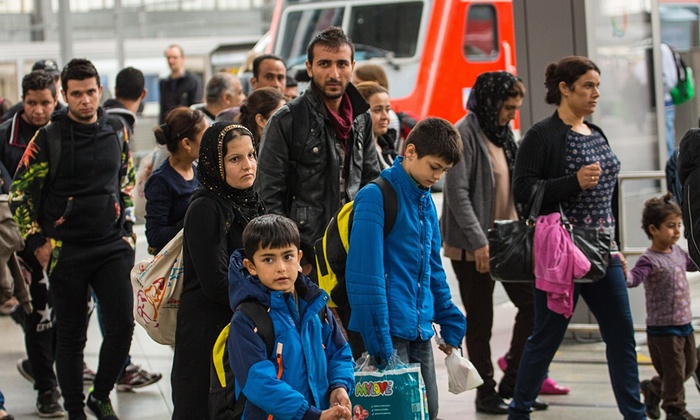Featured Image Artwork: Anete Thomas
It is the worst humanitarian crisis Europe has faced since the Second World War. According to the UNHCR, more than 4 million Syrians have fled their country since the war began in 2011. Syria’s neighbors Turkey and Jordan have been reeling with the influx of refugees, with the UNHCR estimating more than 3 million refugees in the Middle East alone. With over 1 million refugees, over a quarter of Lebanon’s population is now Syrian.
Thousands of families have undertaken incredibly perilous journeys in order to escape conditions of extreme violence with no end in sight, and are now trying to enter Europe in search of sanctuary. This summer alone, about 2,500 people have died attempting to cross the Mediterranean to Europe.
While European leaders continue to differ on how to deal with the refugee crisis, Germany has stepped up to create a hospitable and compassionate Europe.
Angela Merkel has announced that Germany plans to take in 800,000 refugees by the end of this year, a number that could go up to 1 million.
Germany has also refused to follow the European Union’s problematic “Dublin” asylum rules that require displaced people to claim asylum in the first EU State they arrive in, claiming rightly that the regulation isn’t working. Giving these refugees a German home, placing an emphasis on resolution, is a step that needs to be lauded.

It is essential that other EU nations act without any further delay to deal with this humanitarian crisis by fixing the EU’s broken asylum system and make safe channels for people seeking refuge. A compelling article by Kenneth Roth demonstrates that the EU is well-equipped to handle this crisis. According the Roth,
“This “wave of people” is more like a trickle when considered against the pool that must absorb it. The European Union’s population is roughly 500 million. The latest estimate of the numbers of people using irregular means to enter Europe this year via the Mediterranean or the Balkans is approximately 340,000. In other words, the influx this year is only 0.068 percent of the EU’s population. Considering the EU’s wealth and advanced economy, it is hard to argue that Europe lacks the means to absorb these newcomers.”
Along with the German government, a whole host of voluntary initiatives and charities have been working tirelessly to help with the refugee plight. For example, Refugees Welcome has set up a home-sharing scheme, described as “an AirBnB for refugees”. Other organizations like Migrant Offshore Aid operate independent rescue boats to rescue migrants who risk drowning.
We can all do our part too. Donations to these and other organizations such as Médecins Sans Frontières, Alyan Kurdi Fund, and the Red Cross could go a long way in helping ease their tremendous plight.
You don’t have to be a social activist or a millionaire to get behind this cause; a unified public stance has changed the course of many movements. Public pressure can work wonders to persuade other countries across the globe to follow the German lead.
By doing something as simple as changing your cover picture to the image below, we can make a strong compassionate statement supporting Germany’s bold move in favour of these refugees.

Artwork: Anete Thomas
Go on. Change your cover picture. Change something.
Share the campaign via the social buttons on the left. #AGermanHome #Reform









